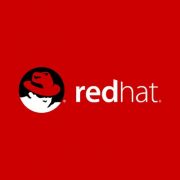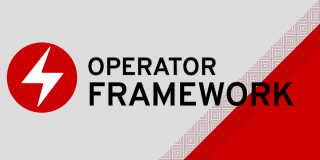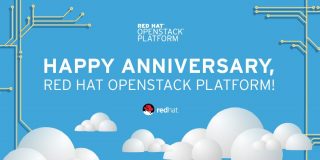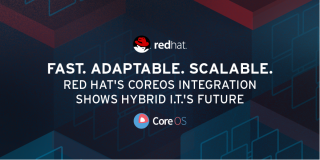Topic: red hat
Maxta introduces Hyperconverged “(Un)Appliance” for Red Hat Virtualization
Maxta Inc., a leading provider of hyperconvergence software, today introduced a Hyperconverged “(Un)Appliance” for Red Hat Virtualization, a pre-configured system of Red Hat Virtualization software and Maxta Hyperconvergence software bundled together on Intel® Data Center Blocks hardware. This joint solution provides all the advantages of appliance-based hyperconvergence without any of the disadvantages – there’s no … continue reading
Red Hat releases Process Automation Manager 7 with cloud-native process automation capabilities
Red Hat has announced the release of Red Hat Process Automation Manager 7, the company’s the next generation business process management offering. It is designed for organizations to streamline, automate, measure, and continuously improve their business operations. “Digital transformation can place new demands on both business and IT to deliver greater efficiency and agility throughout … continue reading
Operators make the lifecycle management of containers simpler
Last month, Red Hat launched the Operator Framework for managing Kubernetes applications. The original idea of operators was introduced by CoreOS about a year and a half ago, said Reza Shafii, vice president of products at CoreOS, which was recently acquired by Red Hat. CoreOS had been working on the idea of automated operations, starting … continue reading
Red Hat Fuse 7 now available with new iPaaS offering
Red Hat has announced a major release of its distributed, cloud-native integration solution. Fuse 7 is now available with a new hosted low-code integration Platform-as-a-Service (iPaaS) offering called Fuse Online. According to the company, the latest release represents a move from traditional centralized integration architectures to distributed, hybrid environment integration architectures. “From the very beginning, … continue reading
Red Hat OpenStack Platform 13 lays the foundation for digital transformation
Red Hat is celebrating the fifth anniversary of OpenStack with the latest release of its cloud Infrastructure-as-a-Service solution. OpenStack Platform 13 builds off the OpenStack “Queens” release, and is designed to provide organizations with the foundation to use hybrid cloud for digital transformation efforts. According to the company, this release features cross-portfolio integration with Red Hat’s other … continue reading
Red Hat announces plans to integrate CoreOS Tectonic, Quay and Container Linux
Red Hat plans to expand its Kubernetes portfolio with new CoreOS integrations. CoreOS is a Kubernetes and container-native solution provider that Red Hat acquired earlier this year. The company announces its first steps for integration CoreOS Tectonic, Quay and Container Linux with Red Hat’s container and Kubernetes-based solutions at the Red Hat Summit in San … continue reading
premium Serverless vs. containers: How the two stand up next to each other
Serverless computing is the latest trend the IT industry is hopping on, but there is still some confusion about what the technology really means. Despite its name, serverless doesn’t mean servers are no longer necessary. It just means organizations no longer need to use their own physical servers. Instead, servers can be run, accessed and … continue reading










